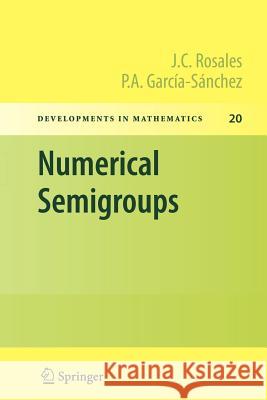Numerical Semigroups » książka
Numerical Semigroups
ISBN-13: 9781461424567 / Angielski / Miękka / 2012 / 181 str.
Numerical Semigroups
ISBN-13: 9781461424567 / Angielski / Miękka / 2012 / 181 str.
(netto: 345,02 VAT: 5%)
Najniższa cena z 30 dni: 346,96
ok. 22 dni roboczych.
Darmowa dostawa!
Let N be the set of nonnegative integers. A numerical semigroup is a nonempty subset S of N that is closed under addition, contains the zero element, and whose complement in N is ?nite. If n, ..., n are positive integers with gcd{n, ..., n } = 1, then the set hn, ..., 1 e 1 e 1 n i = {? n +... + ? n - ?, ..., ? ? N} is a numerical semigroup. Every numer e 1 1 e e 1 e ical semigroup is of this form. The simplicity of this concept makes it possible to state problems that are easy to understand but whose resolution is far from being trivial. This fact attracted several mathematicians like Frobenius and Sylvester at the end of the 19th century. This is how for instance the Frobenius problem arose, concerned with ?nding a formula depending on n, ..., n for the largest integer not belonging to hn, ..., n i (see 52] 1 e 1 e for a nice state of the art on this problem)











